After a bleak weekend at Interlagos for Lewis Hamilton, I was planning on writing about the seven-time F1 drivers' champion and how Ferrari need not worry, as it has strength and depth in that department with the increasingly impressive Oliver Bearman waiting in the wings at Haas.
I was going to argue that the 40-year-old should ultimately be judged in 2026, when the dawn of the new regulations cycle will provide the Maranello-based squad with a fresh opportunity to return to title-winning ways after nearly two decades, and that, crucially, if Hamilton still cannot live up to the sky-high expectations that accompanied him to the Scuderia and his day is deemed done, there would be a ready-made replacement in Bearman.
And then the Italian team's chairman, John Elkann, went on the offensive, openly criticising the British driver and team-mate Charles Leclerc.
Seemingly aggrieved by the pair being perhaps too honest with the media one too many times, and in the wake of a painful, double-DNF São Paulo Grand Prix, he aired his personal feelings.
Hamilton had claimed he was living in a "nightmare" and that slumping to fourth in the constructors' championship standings is a "disaster" and a "disappointment for everyone in the team".
With just three rounds to run, Ferrari now finds itself 36 points adrift of Mercedes in the runner-up spot it secured last year, and four points off Red Bull in third.
Leclerc, meanwhile, labelled the development "frustrating" and argued the rest of the campaign needed to be "perfectly executed" to stand any chance of fighting for second place.
Previously in The Scoop
Elkann's response
Evidently, Elkann felt he had seen and heard enough, taking matters into his own hands, calling on the pair to "talk less" whilst talking up every other aspect of the team.
"Brazil was a huge disappointment," he said. "If we look at the Formula 1 championship, we can say that on one hand we have our mechanics, who are basically winning the championship with their performance and everything that has been done on the pit stops.
"If we look at our engineers, there’s no doubt that the car has improved. If we look at the rest, it is not up to par.
"And surely we have drivers for whom it is important that they focus on driving and talk less, because we still have important races ahead of us and getting second place is not impossible...
"In Bahrain, we won the WEC title. When Ferrari is united, we get results."
There is a lot to unpack in those remarks, not least the call for unity and the accompanying implication that the F1 team does not currently possess it.
Besides the fact that Elkann's heavy-handed comments contradict his imploration and strike as somewhat hypocritical, as his approach will hardly foster unity, he also missed the mark.
Focusing on "winning the championship" in pit stops smacks of the tail wagging the dog. You can lose titles in this manner, but you cannot win them.
And underlining improvements in the SF-25 from a crude perspective is one-dimensional. Elkann knows full well that performance gains relative to rivals are what matter, and Ferrari has failed to do that.
The team at large has underachieved, especially from a technical and developmental standpoint; Mercedes and Max Verstappen's side of the Red Bull garage have made meaningful strides to more than offset any lap time the Prancing Horse has found.
So, yes, whilst the Scuderia's car has improved in real terms, it counts for little when put in context.
It is also worth pointing out that a fundamentally flawed car, one plagued by ride-height issues, is not worthy of Leclerc and Hamilton's talent.
Elkann hasn't just stoked that fire of discontent; he's poured gasoline on it.
A contrast in approach
It is hard to be sure exactly what Elkann was expecting when he said what he did, but it is fair to question what he was hoping to achieve.
What is peculiar is how at odds it is with the approach Ferrari has taken to defend team principal Fred Vasseur earlier in the year.
The Frenchman was handed a new contract to put to bed rumours of his potential exit, and when those returned, the team issued a statement in his support.
But now, Elkann has made Vasseur's life difficult again. The cracks the 57-year-old has been holding together with his bare hands, his boss has promptly fractured.
It is not completely clear whether Hamilton, Leclerc or both were the primary targets, but when you fight fire with fire, everyone ends up burned, and, unfortunately, it has exploded the powderkeg of an already delicate and fraught situation at Maranello.
Within hours, both Hamilton and Leclerc shared their feelings on social media. They were obvious and pointed responses to Elkann's words.
The former said: "I back my team. I back myself. I will not give up. Not now, not then, not ever."
Whilst the latter added that "it's clear that only unity can help us turn that situation around in the last 3 races," and that "we'll give it all, as always."
The gasoline on the fire
The wider response has been decisive and almost unanimously critical of Elkann. And really, the Ferrari chairman should have seen the negative backlash coming.
His drivers haven’t been out of line with their handling of a difficult season; they have merely vented their frustrations and expressed their emotions, which have not been overly targeted, nor have they been unjust, unfounded or unfair.
Not to mention the fact that they are obligated to speak to the media multiple times across an F1 weekend.
To Elkann's credit, he rarely comments publicly on such matters, and perhaps he was trying to invite attention onto himself in a similar way to Vasseur, to deflect and shelter the team from the harsh scrutiny it has experienced throughout the campaign.
However, in reality, it is straight out of the former Alpine CEO Luca de Meo school of public relations — and that isn't meant as a compliment.
He has taken an already less-than-ideal situation and made it significantly worse. The press has been critical enough of Ferrari as it is. Elkann hasn't just stoked that fire of discontent; he's poured gasoline on it.
Now, it is the first thing both drivers — and Vasseur — will be asked about when F1 reaches Las Vegas. Those waters will be hard to navigate, and it increases the risk of battle lines being drawn.
Finger-pointing and blame games have long been ingrained in the DNA of Ferrari, and the Scuderia has always been a political animal.
And save for the decade or so under the leadership of Jean Todt and Ross Brawn, the team has not enjoyed sustained success since the early 1980s, when its enigmatic founder and leader, Enzo Ferrari, was still alive.
But Elkann's lack of diplomacy threatens to disrupt its mission to win a first championship in quickly-nearing two decades.
It also comes at a critical juncture, when there is considerable opportunity provided by F1's regulations reset, and the last thing needed is distractions.
His words may have been intended to help, but there is no denying that they have hindered.
Don't miss out on any of the Formula 1 action thanks to this handy 2026 F1 calendar that can be easily loaded into your smartphone or PC.
Download the calenderMost read
In this article
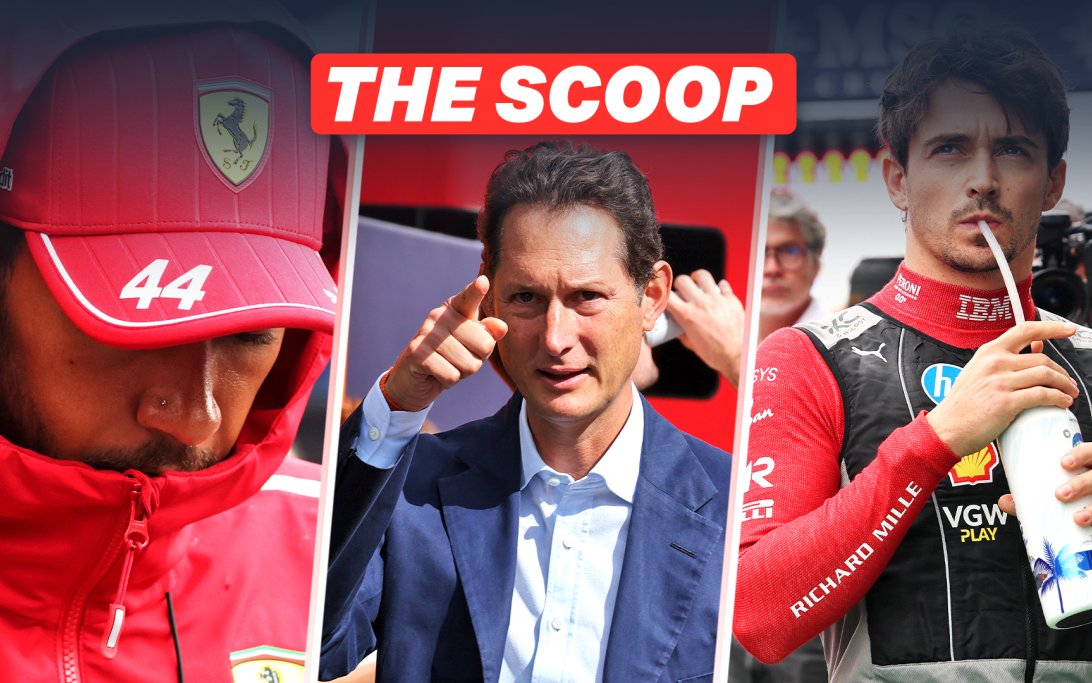
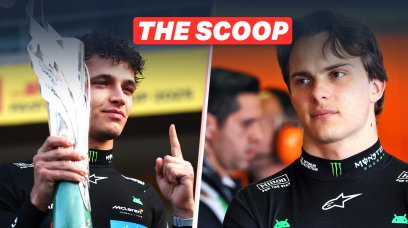
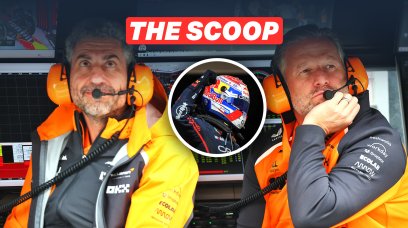

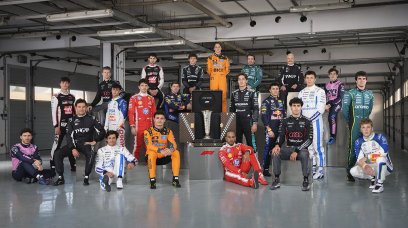
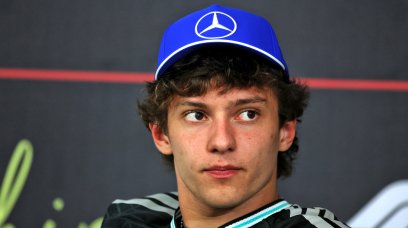
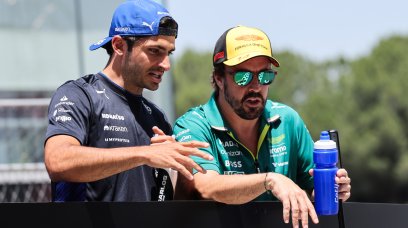
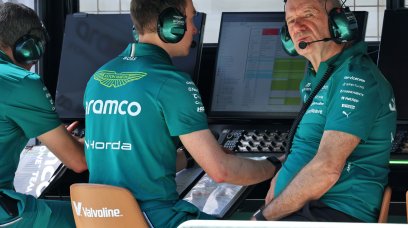
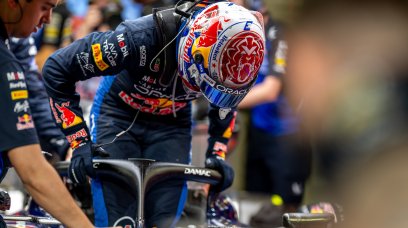
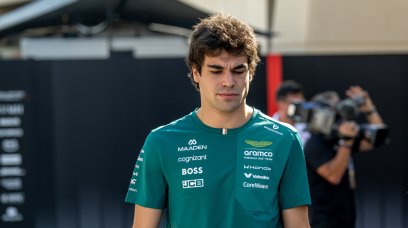
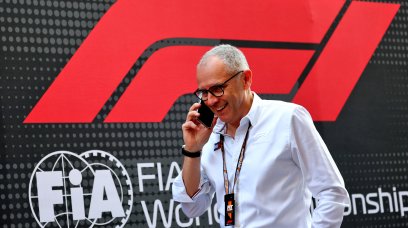
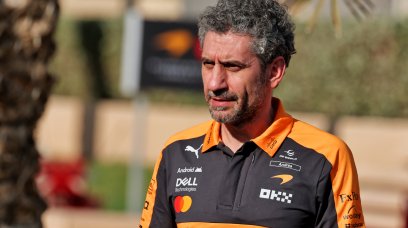
Join the conversation!